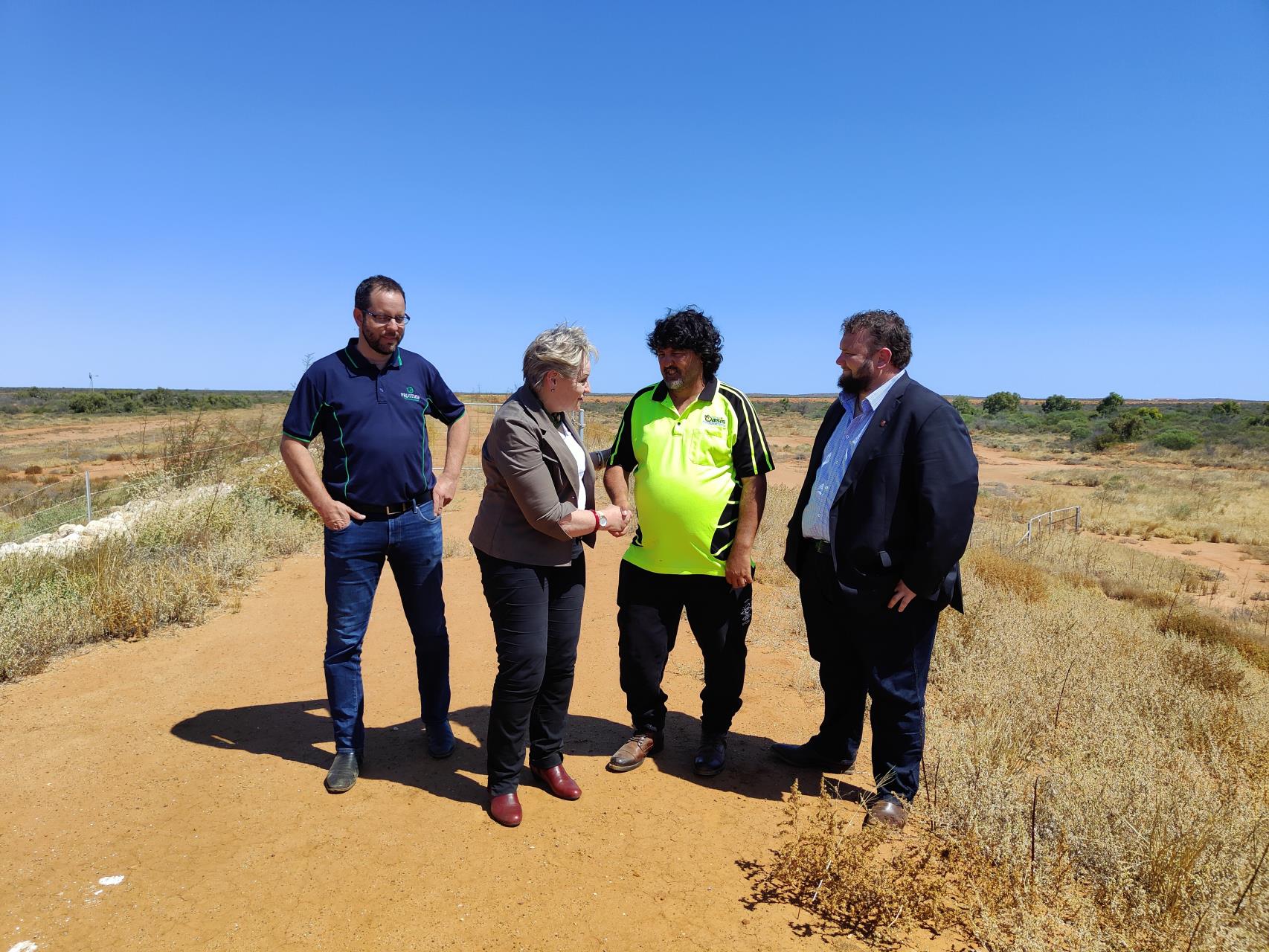Gascoyne Food Bowl
Completed 2021
The Gascoyne Food Bowl Initiative was established to significantly expand the Carnarvon horticultural district. By providing access to new prime agricultural land and water resources, the initiative will enable further growth of the region’s horticultural product, valued on average at more than $97 million.

Hon. Alannah MacTiernan MLC Minister for Regional Development; Agriculture and Food congratulating successful proponents with Hon. Kyle McGinn MLC member for Mining and Pastoral.
Stage two of the release was announced in January 2021 after extensive work by the WA Government. Stage two includes seven parcels of land totalling 300ha and follows the successful conclusion of a Native Title Agreement with the Yinggarda people in late 2020. The new land will be supported by a specific water allocation and will be serviced by a 25km pipeline and a reliable electric power supply, guaranteeing reliable access to high quality water.
The Commission was instrumental in bringing the Food Bowl initiative to life. With diverse stakeholders including growers’ groups and government, a collaborative approach was essential.
The Commission played a key role in advising on Native Title negotiations and facilitated community engagement with water cooperative members and growers. Our strong relationships with local stakeholders allowed us to play an important leadership role to get the project off the ground.
Results:
- 300ha of prime horticultural land released.
- 4GL of irrigation water.
- Up to 300 future jobs.
The successful proponents for land were:
- Fruitico, a large table grape producer based in the Peel region;
- Durmo Quality Produce, a local melon producer based in Carnarvon; and
- 4 Ways Fresh, a South Australian company with horticulture operations in Geraldton.
The proponents propose to diversify and expand their businesses by growing table grapes, rockmelon and watermelon, as well as zucchini, tomatoes, eggplant and capsicum to supply export and domestic markets.